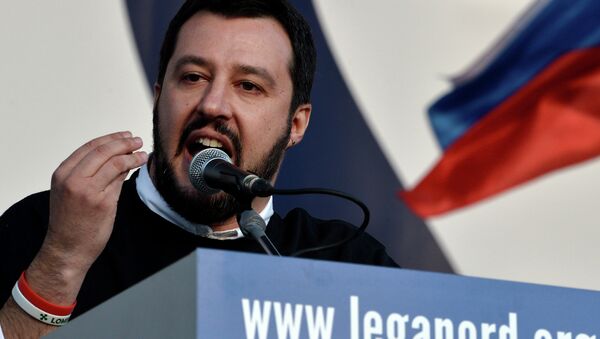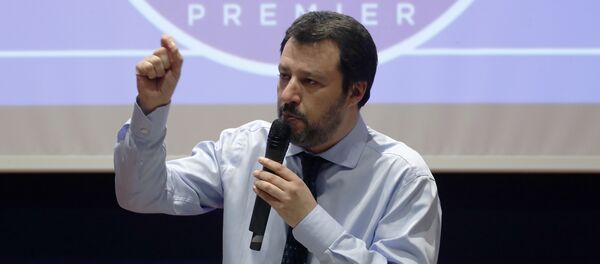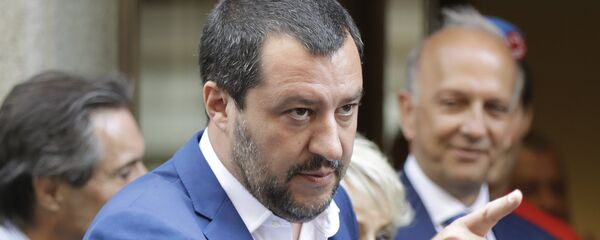On Saturday, Salvini organized a rally in Milan under "Italy First! Toward a Europe of Common Sense" slogan. He has built a pan-European bloc of right-wing parties ahead of the elections to the European Parliament, in which his party is projected to make some of the most striking gains. The demonstration was joined by 11 right-wing European parties' representatives, including Meuthen, French National Rally party leader Marine Le Pen and the Dutch Party for Freedom (PVV) leader Geert Wilders.
"If you are building an alliance, in some political topics different positions are normal. Concerning Russia, I am quite sure that we have a majority, which is clearly in favour of having a good relationship and friendship with Russia," Meuthen said.
"I expect the growth of our alliance. I cannot say which parties will join, we will see that after the election, I am quite sure. Next week everybody is busy with their campaigns, but in two weeks after the elections we will see how many European parties there will be [in the alliance]," he said.
The most obvious candidate for joining the alliance is Hungarian Prime Minister and leader of Fidesz party Viktor Orban, he noted.
"I would appreciate Orban's participation a lot, but it's his decision. If he wants, he is welcome by all of us. But in the current situation he prefers to stay in the EPP [European People's Party]. I don't think it will be a long time until he takes another decision, because it does not really work, the EPP," Meuthen said.
READ MORE: Salvini's Right-Wing Alliance Has Difficulties With Bloc's Composition — AfD
Another possible ally is Nigel Farage and his Brexit party, AfD co-leader said.
"I hope he [Farage] will join this group as well. I know him quite well, often talked about it. He has the same position that we must fight together for a strong and one right-wing group. So if that is his honest position, it would be a natural reaction to join our group. We will see," he said.
If the EPP still has a majority after this election, it won't be a strong majority, he noted.
"They are in trouble, we are not. We are rising, they are declining," Meuthen explained.
"In the European parliament there are so many decisions and speeches that have nothing to do with the common sense. For example, gender policy. It's completely mad what is going on there. It's completely not within the common sense. We just want to give it back to people. Do they really need gender speech to change their languages?" Meuthen said.
From May 23-26, the European Union will hold elections to its parliament. The new composition of the European Commission and its head will be determined based on the results of the vote.




